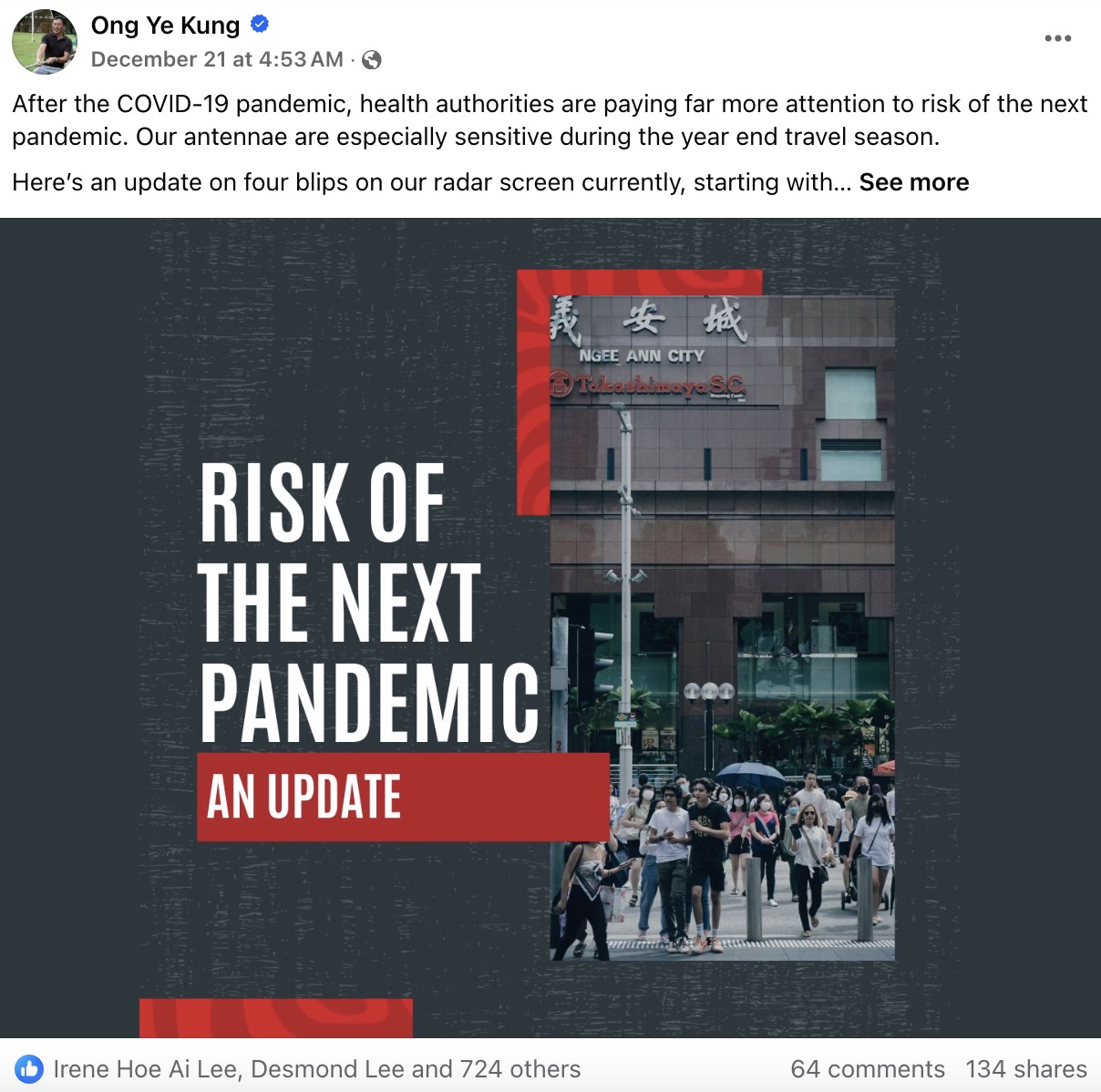SINGAPORE: In a social media post on Saturday (Dec 21), Health Minister Ong Ye Kung discussed the risk of a next pandemic occurring, writing that health authorities are now paying far more attention to the possibility in the wake of the COVID-19 pandemic.
“Our antennae are especially sensitive during the year-end travel season,” wrote Mr Ong in posts on Facebook and Instagram. He provided updates on four particular diseases: H5N1, a yet-unnamed illness in the Democratic Republic of Congo (DRC), mpox, and COVID-19.
The minister wrote that H5N1, which is popularly referred to as bird flu, is the one with the highest risk.

While the illness has been reported since late last year, the first severe case in the United States was announced on Dec 18 (Wednesday) after an elderly person was hospitalized.
Mr Ong explained that most of the 61 persons infected in the US had direct contact with animals, suggesting that transmissions have so far been from animals to humans.
However, he noted: “What we are keenly watching out for are evidence of human-to-human transmissions. If that happens, it may mean that H5N1 has mutated and poses a pandemic risk.”
The US Centers for Disease Control and Prevention stated earlier this year that the public health risk of bird flu is low, though this may change as the virus mutates.
As for the disease in the DRC, Mr Ong wrote that 6 per cent of those who have gotten infected, mostly children, have died. He underlined the importance of investment in surveillance systems, noting that this is why Singapore donated surveillance equipment to the African CDC and is ready to train healthcare personnel in Africa.
He also pointed out that according to DRC’s health authorities, the severity of the disease could be caused by Malaria coupled with malnutrition among children
“As malaria is common in that area, further tests are needed to exclude the possibility of other causative diseases,” the Health Minister wrote, adding that he finds the reporting of the illness as “Disease X” an inappropriate use of the term.
On mpox, Mr Ong wrote that while there have been sporadic imported cases in Thailand, the UK, the US, Germany, and other parts of Europe, most patients across the globe, including Africa, have had a smooth recovery, and the disease is not “very deadly.”
He noted, however, that it will be a matter of time before Singapore gets imported or local cases.
As for COVID-19, the minister identified the local dominant strain of the coronavirus as the Omicron-descended MV.1, which is responsible for around 30 per cent of local infections. He added, however, that contrary to expectations, there has been no year-end wave of infections.
“Our wastewater testing and random tests did not register an uptick, which means that this is not a matter of lack of reporting by patients. A possible reason is that over time, as more people get infected at different times, the infection waves become attenuated,” he wrote,
He added that the Ministry of Health is still watching closely for possible infection waves, as is the case with other countries, as this could increase the patient load in Singapore’s hospitals. /TISG
Read also: Amid rising concerns over bird flu, Singapore & Japan collaborate to develop fast-acting test kit

